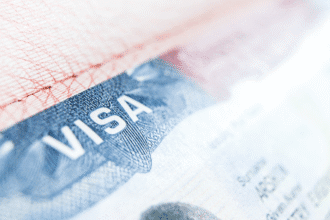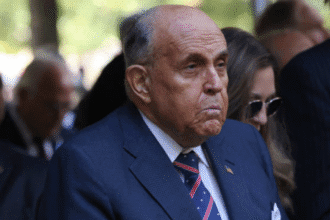President Donald Trump is steadfastly supporting Defense Secretary Pete Hegseth amid escalating national security concerns over news of a possible Pentagon military chat leak involving private conversations about planned US airstrikes against Houthi rebel targets in Yemen. According to reports, the leak started in a secret Signal group chat that Hegseth set up and ran with his brother, wife, and personal attorney—people who had no obvious operational need to see such vital military data.
- What Caused the Scandal of the Pentagon Military Chat Leak?
- What Was the Source of the Pentagon Military Chat Leak?
- What Was Trump's Response to the Leaked Pentagon Military Chat?
- Why Were National Security Concerns Raised by the Pentagon Military Chat Leak?
- What Can We Learn About Secure Communication from the Pentagon Military Chat Leak?
- Concluding Remarks on the Leaked Pentagon Military Chat
Regardless of encryption standards, the scandal has sparked a national discussion about government accountability, data security procedures, and the dangers of handling military information on private messaging networks. The incident continues to draw attention from politicians on Capitol Hill and defense circles as more details come to light.
What Caused the Scandal of the Pentagon Military Chat Leak?
When sources verified that military strike specifics, including American F/A-18 Hornet flight itineraries, were communicated in a secret Signal communication on March 15, the Pentagon military chat hack initially garnered media attention. The chat group, purportedly called “Defense | Team Huddle,” was started by Pete Hegseth, the defense secretary.
The list of chat participants is the most contentious portion of this disclosure. They included Hegseth’s brother, Phil Hegseth; his personal attorney, Tim Parlatore; and his wife, Jennifer Rauchet, a former media executive who had no formal position with the Pentagon. According to reports, Phil and Parlatore are both affiliated with the Department of Defense, but it is unclear why they directly want access to sophisticated military blueprints.
The White House replied to these disclosures by claiming that no “classified” material had been shared during the talk, but this claim hasn’t done much to allay rising security worries. Even when the discussions involve unclassified information, former US defense officials, military analysts, and cybersecurity specialists have all underlined the risks of discussing secret plans in unprotected digital forums.
What Was the Source of the Pentagon Military Chat Leak?
Following the emergence of another example involving a journalist’s unintentional involvement in another Signal communication, the situation became more heated. Military operations against Yemen were apparently discussed in that chat group as well. Experts have emphasized that although Signal’s end-to-end encryption provides robust security in both cases, these platforms were never meant to take the place of safe, governmental-approved communication channels built for military-grade data.
The Pentagon military communication hack sparked fresh discussions among top defense officials in Washington regarding the suitability of digital procedures. Secure communications are regarded as non-negotiable due to the complexity of US military operations and the current global tensions. However, the findings imply that informal communication practices have surpassed formal norms, even at the highest levels of leadership.
What Was Trump's Response to the Leaked Pentagon Military Chat?
President Trump acted swiftly to protect Hegseth despite the possible threat to operational security. “Pete’s doing a great job,” the President told reporters. Everyone is pleased with him. Additionally, he criticized the story as yet another instance of what he called “biased attacks” from mainstream media.
Trump continued by saying that the timing of the report was strange, particularly given that Hegseth had recently fired three top Pentagon officials for allegedly “unauthorised disclosure” of classified material. Using the term “disgruntled employees,” he alluded to the possibility that these former officials were the ones who leaked the news to the media. Although some political supporters were appeased by this explanation, detractors and defense specialists are nevertheless worried that grave errors in judgment had already been made.
Why Were National Security Concerns Raised by the Pentagon Military Chat Leak?
A stark reminder of the dangers that come with even the appearance of improper handling of sensitive military information is provided by the Pentagon military conversation leak. Any real-time talk regarding military plans and air attack timetables, whether classified or not, is extremely sensitive, particularly when it includes operations that are happening or about to happen.
Even encrypted communications like Signal, according to many experts, cannot completely eliminate the possibility of human error. Sharing such data outside of safe, regulated government systems exposes it to interception, misuse, or even unintentional public exposure, regardless of the individuals’ clearance levels.
Furthermore, the security threats are increased when family members and non-governmental organizations get involved. Strict controls are necessary for national defense operations, and a blurring of the boundaries between personal and professional commitments might lead to preventable issues.
What Can We Learn About Secure Communication from the Pentagon Military Chat Leak?
Fundamentally, the Pentagon military chat breach emphasizes how crucial it is for government and military organizations to communicate in a controlled and secure manner. Leaders need to realize as digital platforms develop that security should always come first, especially when lives and geopolitical stability are at stake.
The development and upkeep of secure communication networks costs the US Department of Defense billions of dollars per year. Such incidents serve as a reminder that human error can undermine even the most sophisticated cybersecurity measures.
This dispute also highlights the need for stronger regulations and improved training about top executives’ online conduct. In the future, defense organizations will have to reaffirm boundaries and hold people accountable for improper handling of sensitive data.
Concluding Remarks on the Leaked Pentagon Military Chat
The episode continues to serve as a warning about the dangers of casual conversations in high-stakes situations while the Pentagon leak probe is ongoing. Politically, the controversy may fade with time, but the lessons it teaches about leadership responsibilities and national security endure.
No matter how sophisticated the technologies available to them may appear, organizations and leaders engaged in sensitive work must always emphasize safe and orderly information-sharing protocols. Only by persistent and strict enforcement of policies will the gap between operational safety and human error close.
Now, the White House, the Pentagon, and its leadership must work to rebuild public confidence, strengthen internal controls, and stop such breaches. To protect national interests and the courageous soldiers serving in danger, bolstering digital security must ultimately continue to be a key priority.








